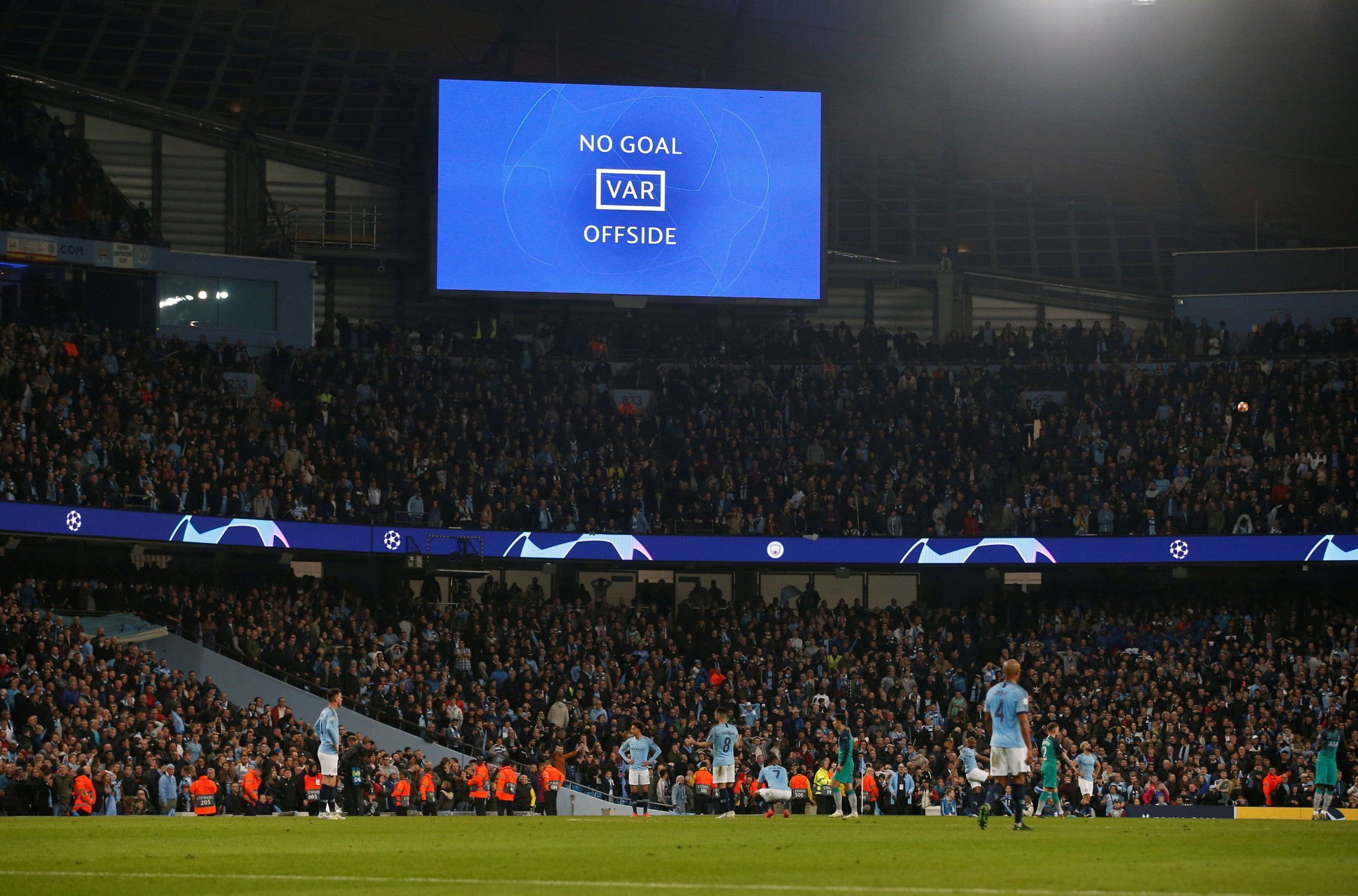[ad_pod ]
Is VAR working properly?
It is a question that is being asked up and down the country, particularly after another Premier League weekend in which its usage was placed firmly under the microscope.
There were numerous occasions in which VAR could have been referred to but seemingly wasn’t.
Now, first off, that isn’t quite the case. The referees at Stockley Park are watching every second of the game, as is the technology. Yet it feels as though they don’t quite know when to step in.
Take Aston Villa’s clash with Crystal Palace as a clear example. As the clock ticked down, Jack Grealish, Villa’s captain, attacked with the ball at his feet. He went down under the challenge of Gary Cahill. The former Chelsea man fell to the floor too, surely evidence that contact had been made. The referee, Kevin Friend, appeared to blow his whistle to signal a dive. Before hitting the ground, Grealish played the ball to Henri Lansbury, who scored a goal that would have earned Villa a 1-1 draw and a point. Grealish was booked.
Dean Smith, speaking afterwards on Match of the Day, said he “didn’t see what was wrong with it”. It was an awful decision and it also seemed to contradict the previous examples of VAR; referees are meant to let decisions go and then review them. Friend didn’t.
This is not to mention that Grealish did not actually gain an advantage by going down and actually fed the ball to a team-mate.
Watch Premier League Live Streams With StreamFootball.tv Below
Rules state that VAR cannot be involved in a decision if the referee has blown his whistle, thus, the goal cannot be awarded by the technology. Did Friend blow to avoid the review? The technology could still have been involved to award the goal and yet, it wasn’t.
In West Ham’s clash with Norwich, which the Hammers won 2-0, Tom Trybull upended Sebastian Haller in the penalty area but Paul Tierney, with a clear view of the incident, opted against giving a spot-kick. VAR, clearly, agreed, despite replays showing that contact was made.
Think too of Newcastle’s goal in the 1-1 draw with Watford. The ball hit Isaac Hayden’s hand before Fabian Schar sent the ball beyond Ben Foster. Now, this was clearly accidental, but the precedent had been set during Manchester City’s 2-2 draw with Tottenham Hotspur. In that game, Gabriel Jesus thought he had scored a late winner, but it was chalked off because the ball ricocheted off Aymeric Laporte’s arm.
There is no difference in the two situations, apart from the fact that Newcastle’s goal stood and City’s didn’t. Why didn’t VAR involve itself here, and rule the goal out?
The rules are not being implemented properly.
And thus, we reach the international break, and an opportunity for the Premier League to right some wrongs.
Clearly, VAR has a number of merits. It should be able to overrule mistakes and ensure that the game is fairer. But as it is, it appears that the referees watching the televisions are afraid of overruling the referees on the pitch.
There is a clear way out of this for the top-flight: they could decide that VAR only applies to purely factual mistakes and implement it purely for offsides and deflections: Was it a goal-kick or was it a corner? This would certainly remove the arguments about “clear and obvious errors”.
It would also ensure that subjective decisions don’t come into it because, as it is, VAR is a mess, and the rules seem to be changing on a weekly basis. How can City’s goal be ruled out, yet Newcastle’s stand? It makes a mockery of the current system.
The laws need to be clearly defined and one feels that leaving those decisions – the likes of handballs and penalty shouts – to the referee on the pitch would be a solid step forward, instead of a step back.
If those referees operating the technology aren’t going to step in anyway – this weekend showed that they do seem to be frightened of speaking out of turn – then remove them from the equation altogether.
It would make VAR a simpler, cleaner piece of tech and it would certainly be easier to understand.
Right now, it’s a resentful and controversial mess that, ironically, has created more problems than it has solved.
[ad_pod ]

